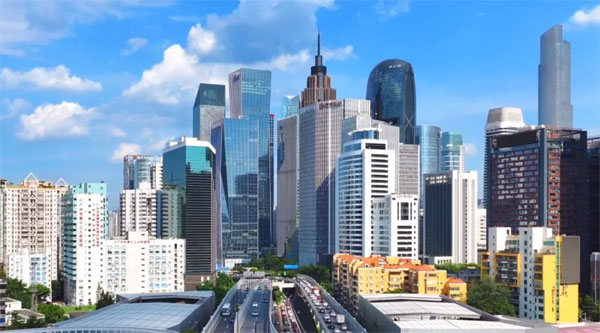Tianhe targets 208 key projects for development
Tianhe district will this year focus on accelerating the construction of 208 key projects in the district, with a total investment exceeding 670 billion yuan ($91.87 billion).
That's according to Zou Xueren, director of the district's development and reform bureau, who was speaking recently at a high-quality development conference.
The district is targeting a total fixed-asset investment of over 84 billion yuan in 2025 and a growth rate exceeding 8 percent.
The bureau will expedite the establishment of a "12126" modern industrial system, Zou said.
It will continue to introduce a series of policies for high-end professional services, biopharmaceuticals, the low-altitude economy, and other sectors – aiming to achieve a GDP growth rate of around 5.5 percent for the entire district by 2025.

Growing fast: Tianhe district is already highly built up and many more projects are on the way. [Photo/WeChat account: tianhefabu]
Tianhe will continue to improve its business environment by implementing a series of measures and continuously expand the application of its "credit+" scenario.
Efforts will also be made to deepen the "credit + finance + innovation" financing service system, in order to address the financing difficulties being faced by small and micro enterprises.
Moreover, over 1 billion yuan will be invested annually to introduce a series of high-quality development industrial policies.
According to Zou, Tianhe is aiming to build a modern industrial cluster system supported by five 100-billion-yuan industries – modern finance, software and internet, professional services, modern trade, and cultural creativity.
In addition, it will build five 50-billion-yuan industries – artificial intelligence, intelligent equipment and robots, biopharma and health, intelligent networked and new energy vehicles and technology services – by 3035.
The share of the added value of the secondary industry, the core industries of the digital economy, and strategic emerging industries in GDP is expected to increase to 10 percent, 30 percent, and 35 percent, respectively.
